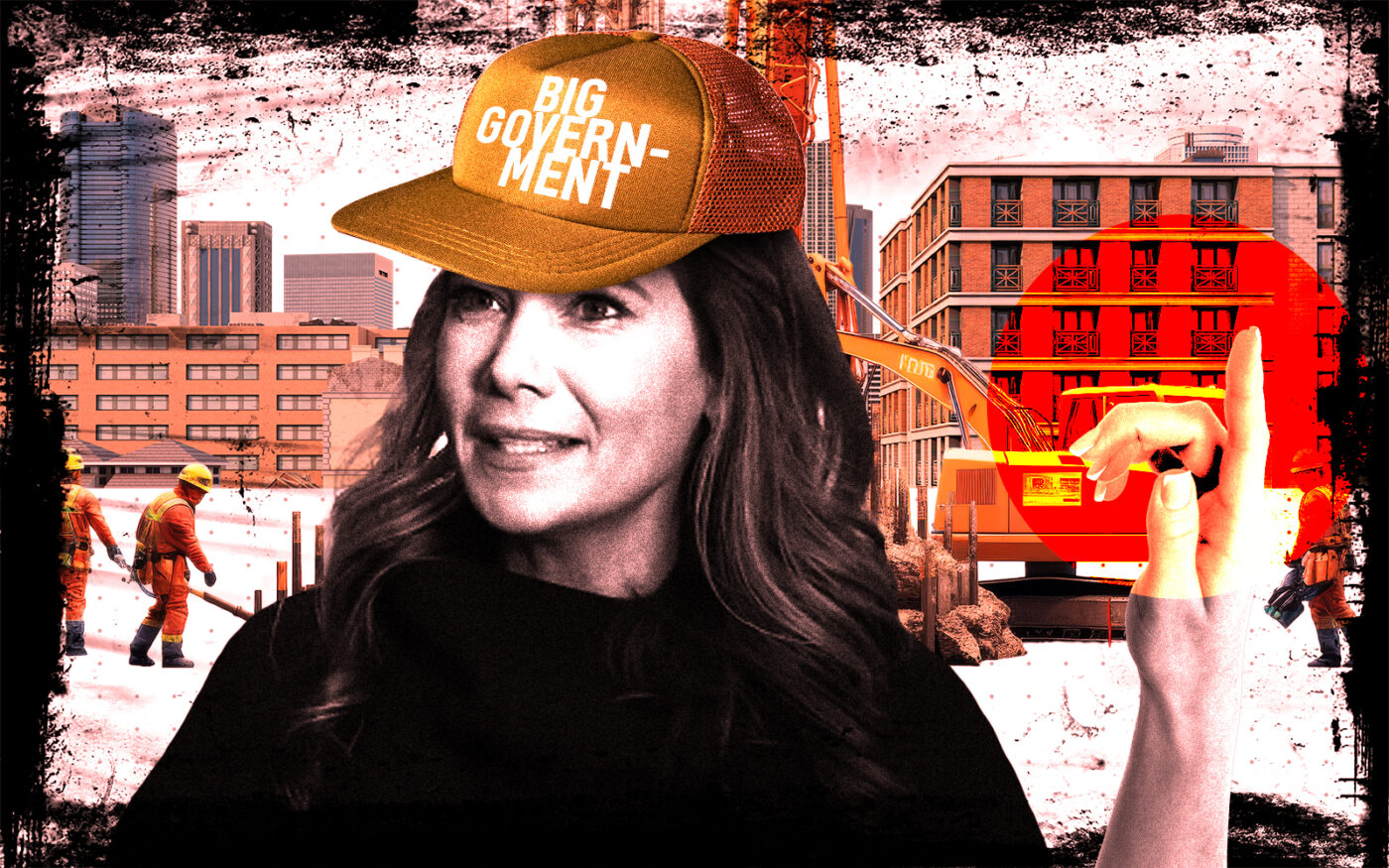The city doesn’t require multifamily developers to include fitness rooms, swimming pools or resident lounges in their buildings. But it does require them to include parking.
Am I comparing apples to oranges? I think not.
These amenities enhance quality of life for the people who use them but also make housing more expensive. For some projects, the extra cost might be too high for potential residents. Most New Yorkers just want quality housing, not Dorn Bracht fixtures and a rooftop helipad. That’s why these decisions should be left to developers.
Mayor Eric Adams’ administration agrees, but Kristy Marmorato does not, at least about parking.
The Bronx Council member demanded the Adams administration add parking mandates to the rezoning it proposed for her district, as well as reduce the building height and density it would allow. With those changes in place, the measure passed easily and everyone declared victory.
But this was a tainted victory, in that it reinforced the notion that parking garages are an essential feature of new apartment buildings, just like sprinkler systems.
Marmorato had de facto veto power over the rezoning because of a Council tradition called member deference. As a health care professional with no background in urban planning or real estate development, her only qualification to make this decision was her victory in the 2022 election. (“Democracy is the worst form of government, except for all the others,” Winston Churchill famously said.)
But Marmorato is a Republican, which at one time would have meant she favored letting businesses decide what to sell in a given market. Instead she put on her Big Government hat.
“We must acknowledge, for some, private vehicles remain a necessity due to work obligations, family responsibilities and accessibility needs,” she said. “Without adequate parking provisions, we risk placing an undue burden on these individuals, forcing them to choose between mobility and livelihoods.”
Whatever the record was for most absurdities in a 40-word statement, Marmorato just broke it.
Even without the mandate, the Department of City Planning expected developers would build 5,973 parking spots, because of market demand. The agency doesn’t think adding the mandate will meaningfully increase that number.
So there was no reason to mandate parking, and no “risk” that residents of the new buildings would be unduly burdened in finding a spot.
Marmorato’s statement that without mandatory parking garages, people would be forced to “choose between mobility and livelihoods” doesn’t make sense. At least, I cannot make sense of it. So I’ll return to her “undue burden” argument.
Has Marmorato ever heard of Uber, Lyft, taxis and car service? In the rezoned section of the Bronx, mobility by car does not require a personal parking spot. And people willing to pay for a spot can always choose to live in a building that offers one. Even without a mandate, there would be plenty of them.
The Bronx also has street parking. If the Council member wants to make those spots easier to find, she can ask the city to expand metered parking.
Parking mandates have added lots of unneeded parking garages in transit-rich neighborhoods and have added to the city’s infamous congestion. Their fans imagine that garages reduce congestion because drivers don’t circle for a spot when they return home, but they do circle for spots when they drive somewhere — which they do far more often when they have a personal spot at home.
Some car owners circle for street parking even if their building has underground parking, because they don’t want to pay for it. That’s a double-whammy, because the garage raised the cost of their housing whether they use it or not. An estimate by advocacy group Open Plans said projects lose one home for every 1.2 parking spaces constructed.
To be sure, the Bronx rezoning will ease the housing crisis, and probably won’t add much parking that developers wouldn’t have built anyway. But it makes it likely that the Council will add parking where it’s not needed in the future, starting with the City of Yes for Housing Opportunity this fall.
Read more



Requiring safety measures in developments is one thing. Requiring amenities like parking is something else. Marmorato’s move continues a tradition of government overreach — such as minimum unit sizes, exclusionary zoning, rent control and the ban on single-room occupancy — that created and maintains the city’s housing crisis.
It is also a reminder that Republicans, just like Democrats and socialists, are prone to this. Last I checked, New Yorkers had no other parties to choose from. That’s why so many of them end up voting with their feet.
